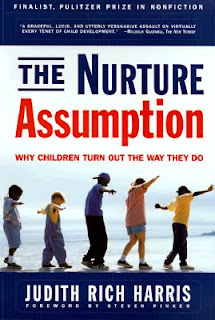 The last thing the AAA guy said was, "I have no idea how you're going to get your car out of there."
The last thing the AAA guy said was, "I have no idea how you're going to get your car out of there." Let me back up. This past Saturday I attempted something very foolish for the sake of my child. I tried to drive my 2-wheel drive sedan up a quarter mile, curvy drive that was covered in a sheet of ice. Why did I do something so stupid? Because at the top of the drive was a local environmental center offering a free children's program about snow.
The center had sent out an email that morning warning that the drive was icy, but that cars were making it up driving in low gear with a bit of speed. I figured if I didn't make it all the way up, I could always just back down in reverse. I made it most of the way up, but then slowed to a stop. In my attempt to go in reverse back down a sharp curve, I slipped and backed right into a giant rock and tree.
Now the problem when my car is stuck nearly a quarter mile up a steep, icy drive was that no vehicle which could tow my car out could get up there and pull without the risk of sliding right into my car. Which is why two days and two AAA guys later my car was still stuck.

Thankfully, Monday morning (after two more cars got stuck on the same drive) the city sent out a salt truck. A couple of city employees dug my car out, and I was able to get a tow to pull me out. The total cost was mostly a lot of worry, a day off work for my husband to watch the kids, and a backache and sore leg muscles from me shoveling and walking up and down an icy drive. Could have been much, much worse.
Oh, the dumb things we do for our kids.
After I first got stuck, while I was calling AAA and fretting about what to do about my car, my daughter was cutting out paper snowflakes, dropping salt and food coloring into blocks of ice for sun-catchers, and making maple icecream. Being only four years old, she had no concerns over the car or my anxiety. She was simply having a lovely time learning about snow.

When she finished her suncatcher, we took it outside to hang up. An array of resident birds such as chickadees and cardinals congregated around bird feeders next to the environmental center. My daughter and I watched them flutter, hop, and peck with shared delight. I looked down at her wondrous expression, and said, "Even though the car got stuck, I'm glad we came."
(Okay, I must admit, I wish we'd just parked at the bottom of the hill and walked up. Had things gone any worse, I'd really be kicking myself.)
I'm glad for the mindset and habits I've developed as a parent regarding my kids' education and exposure to nature. With modern conveniences, and especially living in a city, it's easy to forget where we come from, and the environment that we're dependent on, ecologically speaking.
Winter is the season that reminds us that nature is still in charge. It is the most inconvenient and violent of seasons. School is canceled. Colds and even life-threatening flu and pneumonia become more common. People break bones slipping on ice. Trees fall, weighted down by snow, damaging property. In these modern times it is still relatively easy to ignore the harshness of winter by staying indoors. But then the heating bill arrives.
Garrison Keillor is known for the colorful stories about harsh winters in Minnesota he tells on his radio show A Prairie Home Companion. On one episode he remarked:
Growing up in a place that has winter, you learn to avoid self-pity. Winter is not a personal experience, everybody else is as cold as you, so you shouldn't complain about it too much. You learn this as a kid, coming home crying from the cold, and Mother looks down and says, “It’s only a little frostbite. You’re okay.” And thus you learn to be okay. What’s done is done. Get over it. Drink your coffee. It’s not the best you’ll ever get but it’s good enough.I don't want to worship or idealize nature. The biosphere is neither good nor bad, but awe-inspiring in its complexity, and humbling in its enormity and power.
I hope to get my children interested in the scientific investigation and understanding of nature. I also hope to instill in them an appreciation for nature as it is experienced through both first-hand experience and artistic expression. This is no simple task, as I live in the developed world in the year 2014. My children could easily go their entire childhoods without ever seeing a forest or farm.
This week we bought some bird seed, gathered a few pine-cones, and are making bird feeders in the hopes of attracting some resident birds to our own front yard.
Nature education must be an educational priority, just like reading and math, history and science, art and movement. That's why I drove up a treacherous, ice-covered hill, so my kid could cut paper and play with ice, salt, and food dye.
Addendum I: Here's a wonderfully informative website about snowflakes.
Addendum II: Since I'm on the topic of nature education, Happy Darwin Day 2014!

.jpg)


